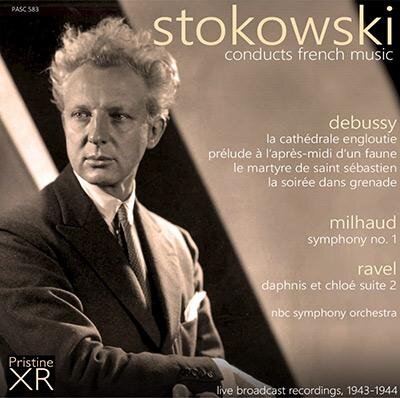Not content with beating the life out of music of the 16th – 19th centuries, the period performance cult in the last two decades has turned its sights onto the music of the 20th century. Their puritanical, hairshirt conjectures have been able to stubbornly survive given that there is no contemporary recorded evidence for earlier music that disproves their negatives. With music of the 20th century, however, their inflexible dogmas are revealed as just that as such evidence of the composer’s intentions survive, often from the creators directly and sometimes abundantly so. The latest installment of Les Siècles’ ongoing Ravel project under François-Xavier Roth is a perfect case in point.
The gushing liner notes state: “[T]he approach of François-Xavier Roth with his ensemble Les Siècles, which gives pride of place to period instruments, is the obvious way to do full justice to this masterpiece. . .” Fair enough. Only problem is that Ravel composed the work for Serge Koussevitzky, who left behind not one, but two recordings of the work.
Comparison with his 1930 RCA Victor recording, the first ever made of Ravel’s arrangement and set down only eight years after it was premiered (while the composer was still very alive, it should be noted), reveals a performance that is the polar opposite of Roth’s bland, featureless recording. Under Pierre Monteux, Koussevitzky, and Charles Munch, the former “aristocrat of orchestras” cultivated a tangy, lithe Gallic sound that was in keeping with Ravel’s expectations. The color they were capable of defies the limitations of their era’s sound reproduction. Fruity winds beautifully complement and contrast Boston’s sleek strings; cumulatively their orchestral palette is Technicolor to Les Siècles’ monochrome. Listen, for example, to the Bostonian trumpet principal on “Samuel Goldenberg und Schmuÿle,” whose bittersweet solo verges on words, mingling sarcasm, anger, and pity. Roth’s soloist, on the other hand, merely plays a series of difficult repeated notes (albeit splendidly). “Baba Yaga” and “The Great Gate of Kiev” under Koussevitzky possess a cinematic breadth, a sense of structural cohesion and dramatic line that continues to impress nearly a century later. The blazing coda of the latter movement is the triumphant end of a long journey, its joy daubed with pathos. Roth, for all his “period” conceits, is unable or unwilling to actually conduct in the period style of podium auteurs like Koussevitzky.
Its discmate, La valse, is no better. As so happened, Monteux conducted the first recording of the score in Paris in 1930. That performance—alive with vibrato, portamenti, and tempi fluctuations—sounds nothing like the perfunctory blandness masquerading as “authenticity” of the Les Siècles recording. Not only that, but evidence suggests that Ravel himself preferred hearing the work interpreted in a far more virtuosically dramatic manner than what Roth is capable of.
“I have never heard [La valse] shine so bright,” the composer wrote to Willem Mengelberg, not exactly a conductor known for his interpretive reticence, following a performance in Amsterdam. “I would like to tell you once more how pleased I was at the beauty of what you performed. . . You are not only a great conductor, but a great artist.”
Then there is the unforgettable nightmarish vision of this music from Victor de Sabata, another conductor whom Ravel praised, with the Vienna Philharmonic in 1951.
Wherefore Roth and Les Siècles’ scrupulous adherence to period performance practices then? So much for scholarship and fidelity to the composer’s intentions!
Hard pass on Roth’s “period” conceits.


